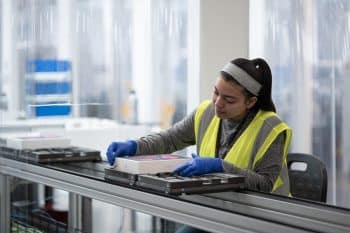The UK could suffer 90,000 job losses If Government fails to help the sector ‘Build Back Better’ after the COVID-19 crisis, according to a report from the Society of Motor Manufacturers and Traders (SMMT).
The new plan dubbed " Full Throttle" is a challenge to the UK Government to form a steadfast ‘Build Back Better’ fund for the sector. The project aims to increase battery production for electric vehicles (EV) with new gigafactories, put in 2.4 million charge points, and extend the plug-in car grant (PiCG).
Michael Cole, President and CEO of Hyundai Europe and Stellantis Country Manager and Senior Vice President, emphasized that any plan must put affordability and access first.
Manufacturing risks would increase if the UK automotive sector is not boosted by a structured Government plan, said Mike Hawes. He added, “The next few years represent a critical period for the sector. The pace of technological change is accelerating and the competition more ferocious. If we are to secure vehicle manufacturing in this country, with all the benefits to society that it brings, decisions need to be made today.”
Hawes continued, “The automotive sector is uniquely placed to help this government deliver on its agenda; to level up, deliver net-zero and trade globally."










